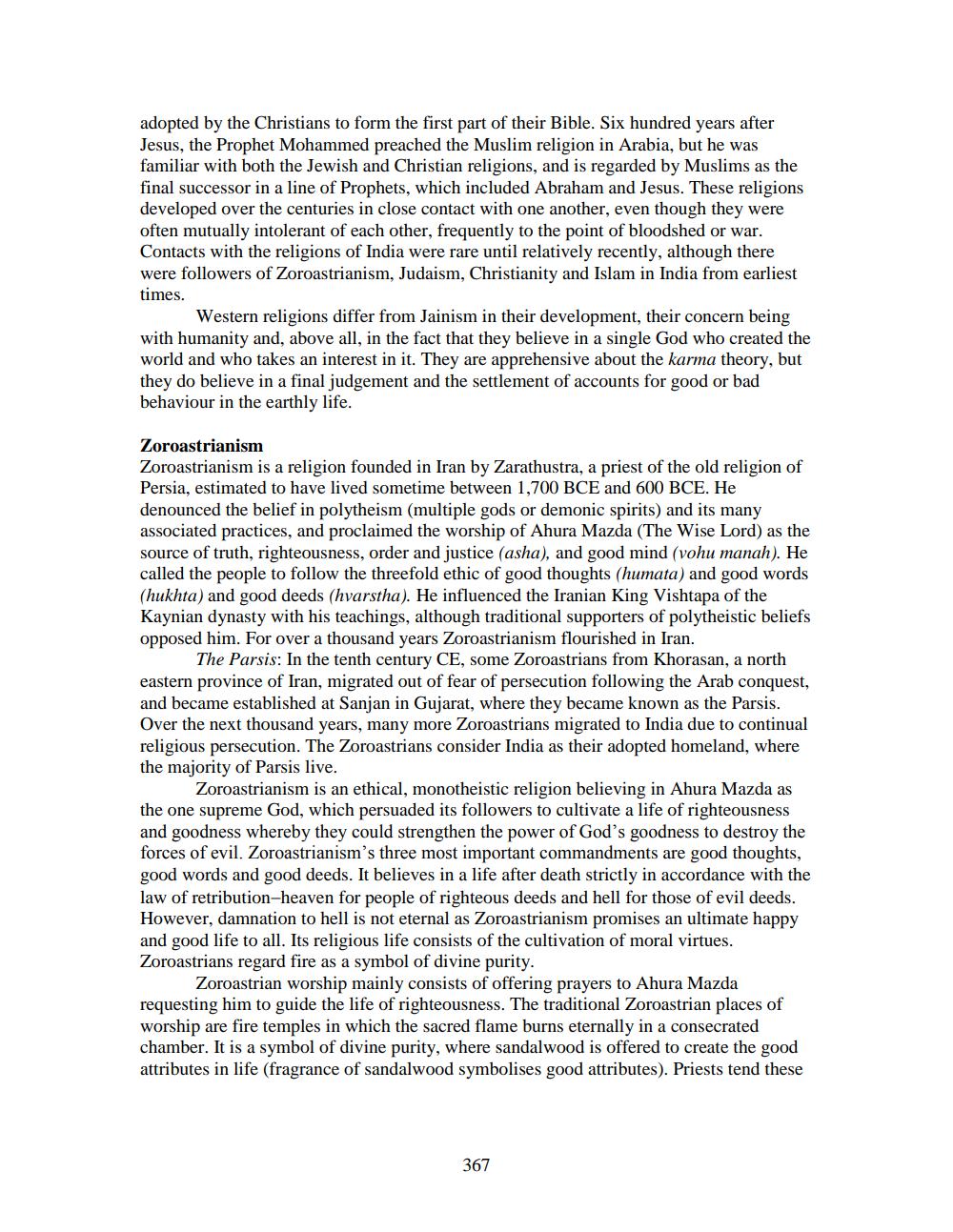________________
adopted by the Christians to form the first part of their Bible. Six hundred years after Jesus, the Prophet Mohammed preached the Muslim religion in Arabia, but he was familiar with both the Jewish and Christian religions, and is regarded by Muslims as the final successor in a line of Prophets, which included Abraham and Jesus. These religions developed over the centuries in close contact with one another, even though they were often mutually intolerant of each other, frequently to the point of bloodshed or war. Contacts with the religions of India were rare until relatively recently, although there were followers of Zoroastrianism, Judaism, Christianity and Islam in India from earliest times.
Western religions differ from Jainism in their development, their concern being with humanity and, above all, in the fact that they believe in a single God who created the world and who takes an interest in it. They are apprehensive about the karma theory, but they do believe in a final judgement and the settlement of accounts for good or bad behaviour in the earthly life.
Zoroastrianism Zoroastrianism is a religion founded in Iran by Zarathustra, a priest of the old religion of Persia, estimated to have lived sometime between 1,700 BCE and 600 BCE. He denounced the belief in polytheism (multiple gods or demonic spirits) and its many associated practices, and proclaimed the worship of Ahura Mazda (The Wise Lord) as the source of truth, righteousness, order and justice (asha), and good mind (vohu manah). He called the people to follow the threefold ethic of good thoughts (humata) and good words (hukhta) and good deeds (hvarstha). He influenced the Iranian King Vishtapa of the Kaynian dynasty with his teachings, although traditional supporters of polytheistic beliefs opposed him. For over a thousand years Zoroastrianism flourished in Iran.
The Parsis: In the tenth century CE, some Zoroastrians from Khorasan, a north eastern province of Iran, migrated out of fear of persecution following the Arab conquest, and became established at Sanjan in Gujarat, where they became known as the Parsis. Over the next thousand years, many more Zoroastrians migrated to India due to continual religious persecution. The Zoroastrians consider India as their adopted homeland, where the majority of Parsis live.
Zoroastrianism is an ethical, monotheistic religion believing in Ahura Mazda as the one supreme God, which persuaded its followers to cultivate a life of righteousness and goodness whereby they could strengthen the power of God's goodness to destroy the forces of evil. Zoroastrianism's three most important commandments are good thoughts, good words and good deeds. It believes in a life after death strictly in accordance with the law of retribution-heaven for people of righteous deeds and hell for those of evil deeds. However, damnation to hell is not eternal as Zoroastrianism promises an ultimate happy and good life to all. Its religious life consists of the cultivation of moral virtues. Zoroastrians regard fire as a symbol of divine purity.
Zoroastrian worship mainly consists of offering prayers to Ahura Mazda requesting him to guide the life of righteousness. The traditional Zoroastrian places of worship are fire temples in which the sacred flame burns eternally in a consecrated chamber. It is a symbol of divine purity, where sandalwood is offered to create the good attributes in life (fragrance of sandalwood symbolises good attributes). Priests tend these
367




